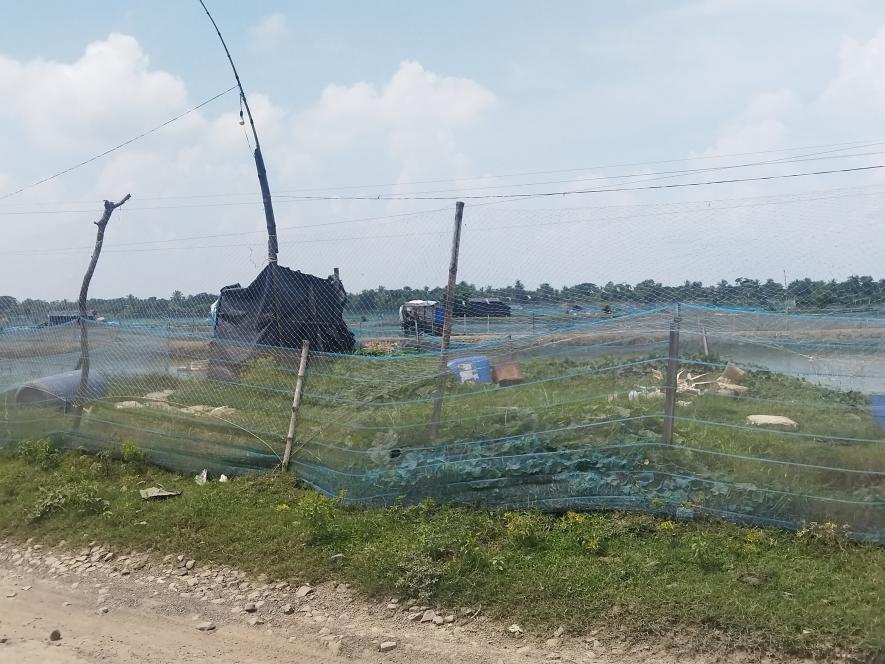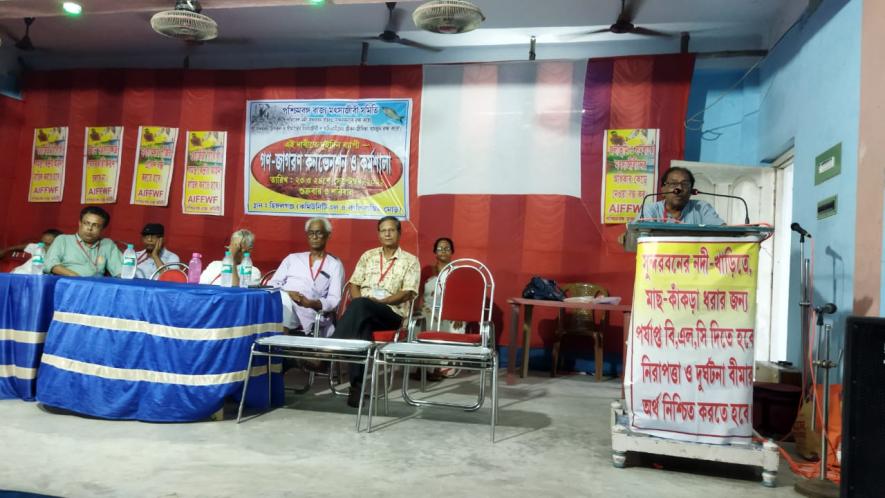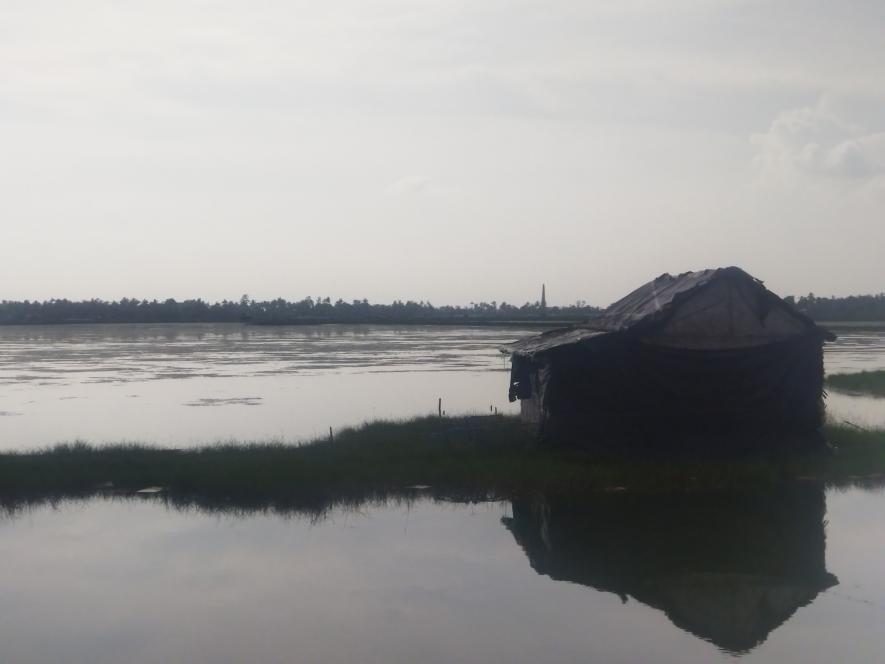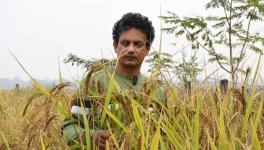Bengal: ‘Sagar Mela Project, Blue Revolution Leading to Victimisation of Fisherfolk’

Hingalgunj (Sunderbans): The Centre’s proposed Sagar Mela project and Blue Revolution tantamounts to victimisation of fisherfolk along the entire Indian coastline, according to the All India Fishers and Fishery Workers Federation (AIFFWF), which recently met at a mass convention at Hingalgunj in West Bengal.
At an all –India convention, Debasish Barman, president AIFFWF, demanded that the government should improve social security provisions for fisherfolk and adopt a pisciculture-friendly policy. The convention also proposed scrapping of the Sagarmala project, which, they said, would “spell doom for the entire fishing sector across the country."
Uma Sarkar, another leader of the organisation, highlighted the importance of protecting the environment and forests along with the depth of various river channels in the Sundarbans area of the state. “Protecting mangroves should be a priority currently,” she said.
“The Centre is harming the ecology of the Sundarbans and hampering fishing in the area by allowing passage to ships. Blue Revolution is meant for big corporate entities. We will not benefit from it,” Barman, who belongs to the Hingalgunj Fisherman Community, told NewsClick on the sidelines of the convention.

“The size of the trawlers fixed by the Central government is meant for big companies. Besides, small-scale fishers cannot bear the huge cost of increasing the size of the present trawlers to 20 feet," he added.
Barman also said that restricting small-scale fishers to 10 nautical miles from 200 nautical miles is also hampering fishing in the country.
The convention also discussed the issue of big Indonesian trawlers allowed to fish in Indian waters under the Association of Southeast Asian Nations (ASEAN) Free Trade Agreement using modern solar searchlights to locate and net huge amounts of fish.
Hariprasad Roy, 51, a poor fisherman hailing from the Hingalgunj area of the Sundarban area, said a couple of years ago he had to sell his own boat and the boat license, as fishing has become unprofitable profession in the Sundarban area where about three fourth of the four million residents are dependent on water to earn their living, he told NewsClick.
Now Hariprasad sells fish in the local Hingalgunj market to earn his living. He has been lucky as he didn't have to venture out of the state as a migrant labourer, like others in his area have had to do after losing their fishing profession. Nearly one-third of the able-bodied residents of the Sundarbans have left the state to earn their living.
During a visit to Hingaligunj area, NewsClick observed that the prawn culture on a large scale was being run by big capital-oriented firms, after the inundation of farmlands with saline water. They sourced the land from the erstwhile tillers paying them nominally. After rearing prawns in the farmlands for a couple of years, the land becomes barren and fallow and unfit for any other cultivation. So, the big capital-oriented firms reap huge profits and in the process, the erstwhile tillers turn into paupers, as they lose their lands and its cultivability.
Before 2011, West Bengal topped the country in fish production. At present, it is only producing 4,857 tonnes daily, though the daily requirement of the state is 4,940 tonnes, as per a report tabled in the West Bengal Assembly in 2020. To fulfil the state’s demand, fish is being imported from Andhra Pradesh and Chhattisgarh, according to reports.
In 2005, an attempt was made by the Left Front government to start big carp fish cultivation in Nayachar and Captain Bheri region, but all that was “looted” in subsequent years after change of governance in the state, as per the report.
Along with this, the Centre’s ‘Blue Revolution’ project is also hampering both inland and marine fishers in the state, AIFFWF said during the convention. The Blue Revolution focuses mainly on increasing fish production and productivity from aquaculture and fisheries resources – both inland and marine. There are about three lakh fisherfolk in the Sundarbans and another 1.5 million residents who are dependent on fishing for livelihood.

Tuhin Ghosh, a scientist and head of the oceanology department of Jadavpur University, who spoke at the convention, called for an immediate ban on the international sea trade route that passes through the river channels of Sundarbans, which, he said, was causing severe damage to the islands. The convention noted that this had led to artificial high waves, while the oil spills – as residuals in the channels – were affecting the fish population of the entire area.
Speaking at the convention, Pritikumar Roy of Jadavpur University, said now puffed rice mixed with poison was being given as a bait by foreign trawlers who, following the Blue Revolution policy, were entering the Indian waters with a valid licence from the Central government and were making a huge catch from the region, thereby hampering the eco-diversity of the region.
The pertinent question of giving identity cards and licenses to all the fisherfolk of the state also came up in the discussion.
Barman also demanded a ban on the entry of big capital into the cooperative sector. The convention also sought provision of loans at lower interest rates for the fishers – as were offered during the rule of the Left Front in the state.
Another demand was that inland water bodies be leased only to fishers’ cooperatives. Barman also pointed out that of the 103 ports that dot the Indian coastline, 75 had been privatised already and that was harming the fishing community immensely. In West Bengal, the Digha and Shankarpur fishing ports are being privatised.
Sarkar, central executive member of AIFFWF, appealed to the government to reduce land tax, which, she said, had increased manifold in the past few years.
Get the latest reports & analysis with people's perspective on Protests, movements & deep analytical videos, discussions of the current affairs in your Telegram app. Subscribe to NewsClick's Telegram channel & get Real-Time updates on stories, as they get published on our website.
























